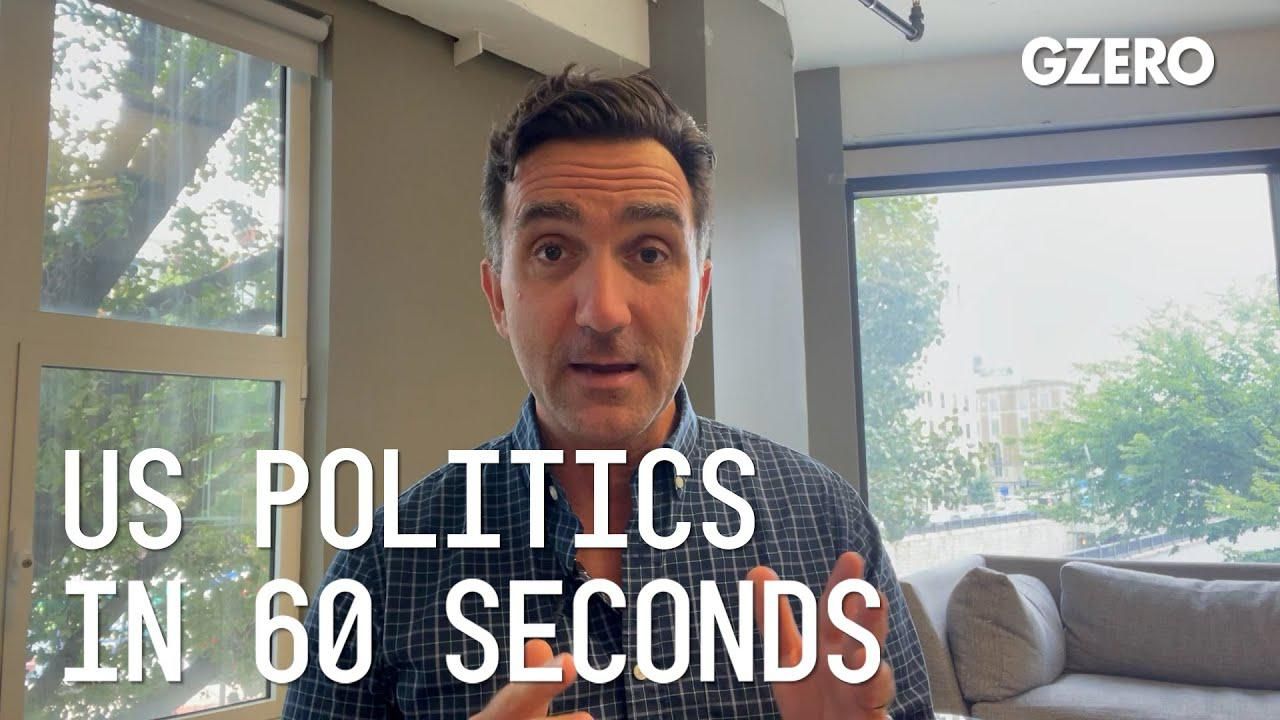US Politics In 60 Seconds
Are we in a recession?

Are We In A Recession? | US Politics In :60 | GZERO Media

Jon Lieber, head of Eurasia Group's coverage of political and policy developments in Washington, DC, shares his analysis on US politics.
When is a recession, not a recession?
The Biden administration this week has spent an extraordinary amount of time refuting the notion that the US economy is in a recession. Treasury Secretary, Janet Yellen on Sunday pointed to strong job numbers and consumer spending as signals that the US economy continues to grow. But plenty of analysts have started to question how strong and durable that growth is in the face of rising prices and Fed induced interest rate hikes. Later this week, the government will release its estimate for second quarter economic growth. The first quarter data showed that the economy shrank by 1.5% and supply chain problems wreaked havoc on economic output and some estimates of second quarter growth suggest there could be another quarter of contraction in the cards.
There's a general rule of thumb that two quarters of negative growth mean that the US economy is in a recession, but that is not a hard and fast rule. The last officially designated recession in the US only lasted for two months as the economy came to a quick halt and then started to rebounding quickly in the early days of the coronavirus pandemic. So are we in a recession right now? No one knows yet. The designation is not made by the government or by the media, but by a committee of economists at a nonprofit research organization called the National Bureau of Economic Research. The committee takes into account, a number of economic indicators, the most important being the government's quarterly economic growth estimates. And they usually make their determination of the troughs and peaks in the growth cycle with significant lags.
Recent announcements have come between three and four months after the beginning or the end of a recession. But in 2008, the committee did not declare the economy to be in a recession until a full year after the start date. And they didn't announce the beginning of the 2001 recession until it was already over in November. So why does this matter so much for the administration? Because they remember a historical episode from the 1990s when the NBER declared in April 1991, the start of what turned out to be a mild recession that had begun in the summer of 1990, but they did not declare the end date of that recession, which turned out to have been in March of 1991 until December of 1992, after the presidential election that the incumbent President George H. W. Bush had lost. The perception of a weak economy, hobbled President Bush.
And so this White House wants to do everything it can to control the narrative around the economy, even if avoiding the "r word" won't change the facts in the ground that the public broadly thinks the economy's in the dumps, giving the president low approval for his handling of the economy and telling pollsters that the rising prices are weighing on their confidence in the economic outlook. It's clear they sense the political vulnerability here and are very sensitive to prevent anyone from saying the word “recession”, unless they absolutely have to, but unfortunately for them wishing for a strong economy won't make it so.
When Japanese Prime Minister Sanae Takaichi called snap elections last month, it was a big gamble. Holding a winter election just four months into her tenure with no real policy record to run on?
Tune in on Saturday, February 14th at 12pm ET/6pm CET for the live premiere of our Global Stage from the 2026 Munich Security Conference, where our panel of experts takes aim at the latest global security challenges.
Microsoft unveiled a new set of commitments guiding its community‑first approach to AI infrastructure development. The strategy focuses on energy affordability, water efficiency, job creation, local investment, and AI‑driven skilling. As demand for digital infrastructure accelerates, the company is pushing a new model for responsible datacenter growth — one built on sustainability, economic mobility, and long‑term partnership with the communities that host it. The move signals how AI infrastructure is reshaping local economies and what people expect from the tech shaping their future. Read the full blog here.
The Israeli government unilaterally passed measures that allow Jewish settlers to purchase land in the West Bank, overriding past laws that effectively banned the sale of property there to anyone other than Palestinian residents.